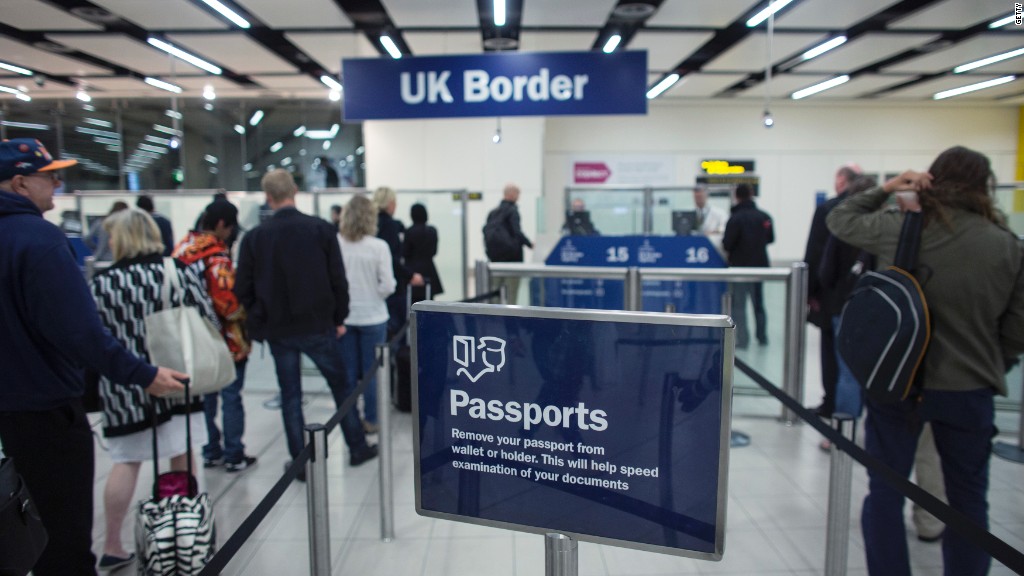
Britons will vote on June 23 whether the U.K. should remain a member of the European Union of 28 countries.
One hot topic in the debate is immigration. EU citizens are allowed to live and work in any EU country, and many have come to the U.K., attracted by a relatively strong economy.
People campaigning for the U.K. to leave -- the 'Brexit' scenario -- argue that the country will have greater control of its borders and immigration outside the EU.
That's debatable: non-members such as Norway and Switzerland allow EU citizens to come and go freely in exchange for unrestricted trade access to the huge EU market of 500 million people.
Here are some of the key facts and figures you need to know as the historic referendum draws closer:
Net migration up sevenfold since 1991
Immigration to the U.K. in 2015 was nearly double the level in 1991, the earliest year for comparable data from the Office for National Statistics.
Roughly 630,000 people moved to the U.K. in 2015, which is more than double the number of people who left the country.
Net migration for the year -- the difference between the numbers coming and going -- was 333,000 people, up from 44,000 in 1991. (Prime Minister David Cameron has said he wants to cut net migration to the "tens of thousands.")
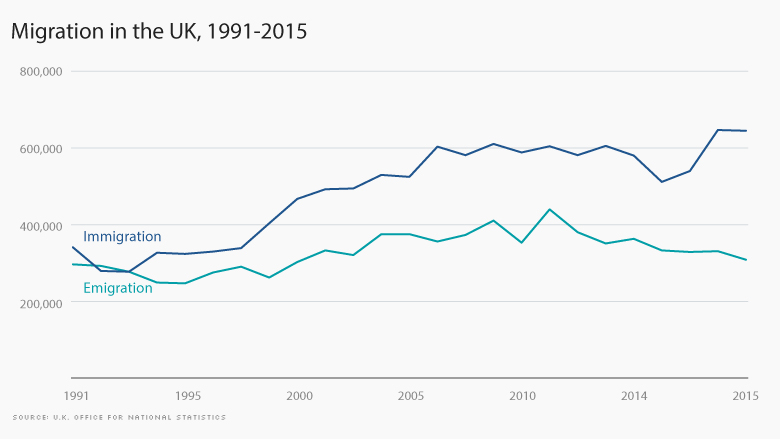
Immigrants into the U.K. can be divided into two broad categories: people with EU passports and people with other passports.
Nearly 49.5% of foreign immigrants had passports from other EU countries, such as Poland, Ireland, Italy, Lithuania and Germany. Meanwhile, 50.5% had passports from countries outside the EU, such as India, China, and the U.S.
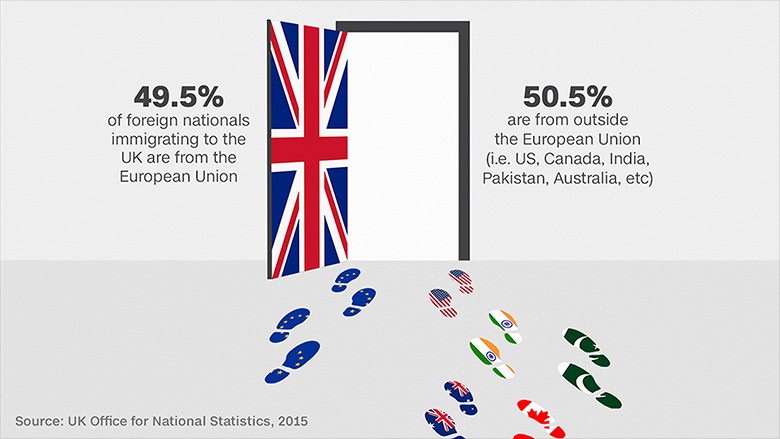
The #1 reason why people come to the U.K. is for work, followed by study, according to the ONS.
8.3 million people in the U.K. were born abroad
Increasing immigration has changed the make-up of British society, particularly in London.
The latest available data -- for 2014 -- show that roughly 8.3 million people living in the U.K. were born in another country. That's equivalent to 13% of the population, up from 8.9% in 2004.
Three million of them have gained British passports since arriving in the U.K.
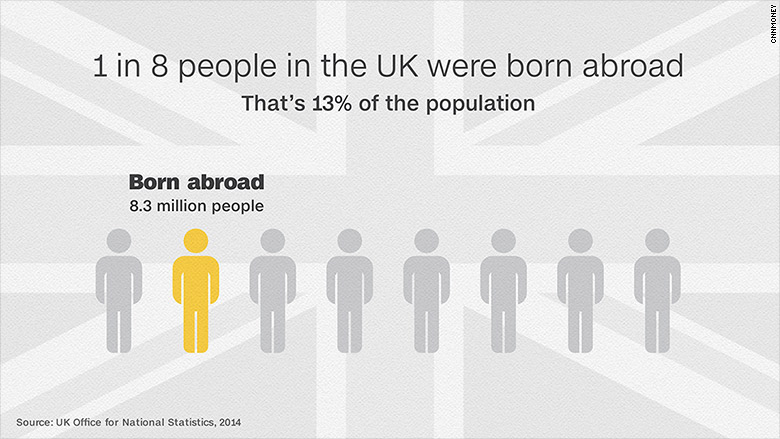
London = Diverse
London is by far the most diverse region in the U.K., according to a House of Commons report based on ONS data.
Roughly 36.5% of Londoners were born on foreign soil. London is a magnet for immigrants as it boasts a thriving financial sector, vibrant tech scene and strong job market.
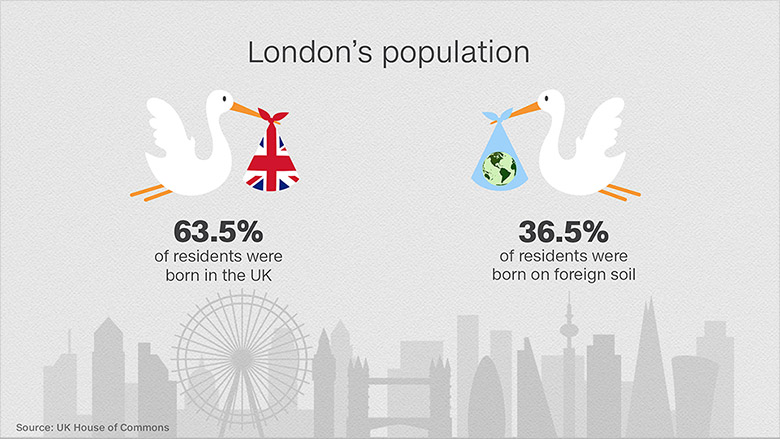
Across the rest of the country, the vast majority of the population consists of people born in the U.K. In many regions, less than 10% of residents were born abroad.
Germany is #1
The latest European data show Germany has the largest number of foreign passport holders in the European Union. The U.K. comes in second place, followed by Italy, Spain and France.
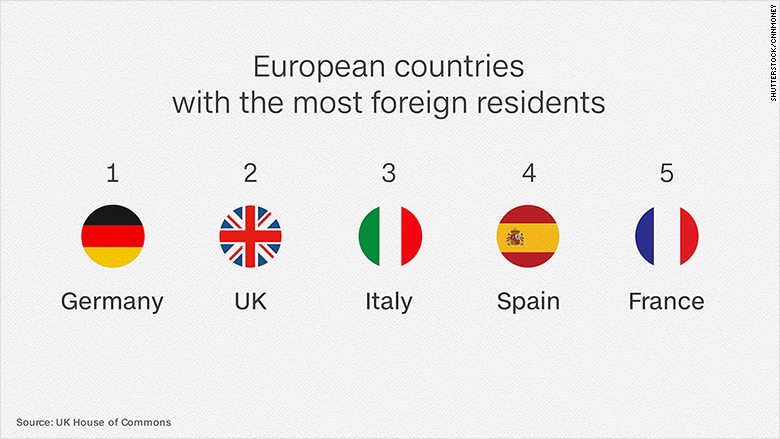
Trading places
The House of Commons estimates that about 1.2 million British people live in other EU countries, while 3 million people from other EU states live in the U.K.
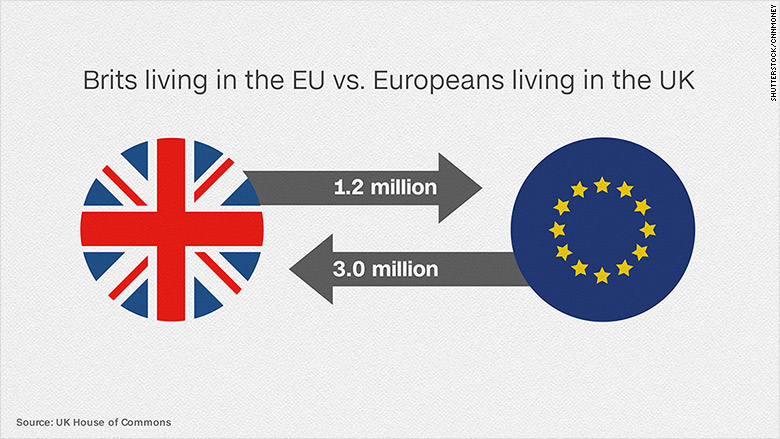
The Oxford Migration Observatory estimates that of the 3 million EU-born migrants who live in the U.K., about 1.9 million -- or 63% -- are working.
That's higher than the average for the U.K. population as a whole.
The 'Brexit' referendum
As voters decide whether they want a Brexit, the topic of immigration continues to come up.
Some say higher immigration strains services such as education and healthcare, exacerbates a housing shortage, keeps wages low and can put British workers out of a job.
Others argue that immigrants bring valuable skills, boost economic growth and support the nation by working and paying taxes.


